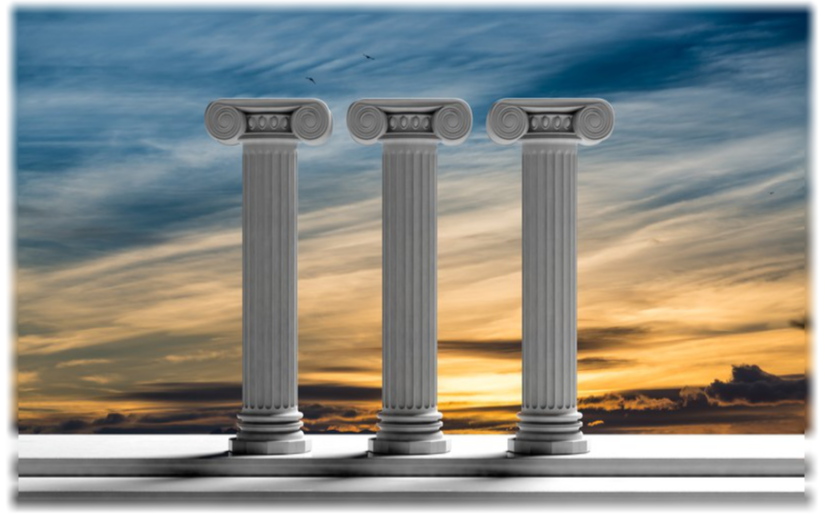Democracy is about more than elections. The three pillars of democracy were designed to protect and uphold the rights of the people. And to protect the people from government. In that sense, the case of the ‘Canberra Two’ is both scary and illuminating.
As Andrew Wilkie pointed out in Parliament, our democratically elected government is preparing to prosecute two individuals whose only ‘crime’ was revealing dirty foreign policy negotiating tactics during John Howard’s tenure (in East Timor in 2004). In this case the government cannot even invoke the ‘national security’ defence – the transgressions happened during commercial negotiations about oil exploration rights.
And as Wilkie and others have pointed out, subsequent governments have in effect been complicit by endeavouring to cover it up, blatantly flouting international law in the process. All in the name of democracy, yet not in adherence to its principles.
The fundamental issue here, of course, is the protection of free speech. In this case related to the right of a citizen to speak out about a perceived wrong, regardless of who. Free speech is the foundation on which democracy is based. And the most important function of a true democracy is to protect the freedom of it’s inhabitants. And as we have yet to figure out how to do this on a global scale, this responsibility falls on the nation state.
In addition to free speech, democracy is supposed to guarantee our right to freedom of religion (or to have none), freedom of association (even with Mark Latham), equal treatment before the law and the presumption of innocence (including for terrorists), the right to and protection of privacy (also for those in the public eye), the right to education and freedom of (almost all…) movement.
Many more rights can be inferred from these, such as non-discrimination on grounds of race, gender or opinion – and the right to partake in free elections.
In short, true democracy is about the protection of human rights. And properly implemented it is quite an ingenious system, despite what misgiving Churchill and others may have had about it. Firmly planted on a foundation of free speech, it consists of ‘The Three Pillars of Democracy’ – as first hinted at by John Locke in the 17th century, his theory later refined by Baron de Montesquie in ‘De l,esprit des lois’ (The Spirit of the Laws) some 60 years later:
- The People, laying down the laws of the land – normally through an elected representative body such as a parliament or congress.
- The Government – beholden to the people’s representatives – tasked with governing according to the laws.
- The Judiciary – the adjudicator of disputes between people and between people and the government, the judge when laws are broken, and the interpreter of laws.
For it to work as intended, each pillar has to be absolutely independent. And aye, there’s the rub.
In the Westminster system of traditions and conventions that Australia generally adheres to, there are blurred lines between parliament (the people) and government. In the Republican system of the United States the lines between the elected representatives and the President are, at least in theory, clearer, and they are separately elected. But their politicised judiciary is where the Founding Fathers got it very wrong.
In Turkey, the (freely elected) President has become all powerful, no longer beholden to Parliament, with the executive branch of his Government as his servants and with the power to appoint and sack judges at will.
Back home, in the absence of a bill-of-rights and a (comprehensive) constitution of our own, politicians have had a free reign to take over the first two pillars of government and joined them at the hip. People now elect party delegates, not representatives. Parties control Parliament and parties appoint not just the Prime Minister but the whole of Executive Government, currently forty-two ministerial positions of power answerable in reality to their party, not to Parliament.
Parties propose laws and parties dominate Parliament. ‘Independent member’s bills’ are a rarity and the ‘conscience vote’ a novelty – both reserved for issues of lesser import. All major bills are predetermined by Government and presented to the party room in Parliament as decrees, enforced by the party whip. Debate in Parliament is perfunctory, always adversarial and nobody never changes their mind – except in backroom deals between parties.
Our judicial system, albeit not without flaws, remains largely independent, and we can only hope that it throws out the spurious allegations against the ‘Canberra Two’, but this is by no means guaranteed. Judges can (and should) only make their determinations on the laws as they have been enacted, and in this case the laws to be interpreted were designed to protect the Government, not the People.
And therein lays the challenge. A ‘Gordian knot’ that no election will solve, only a thorough reform of our democracy can do that.

